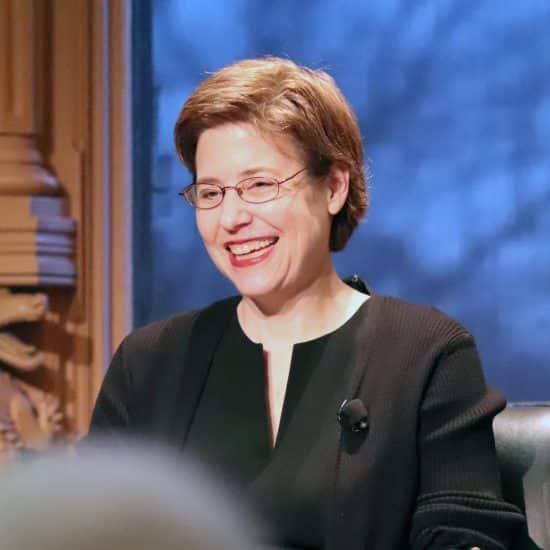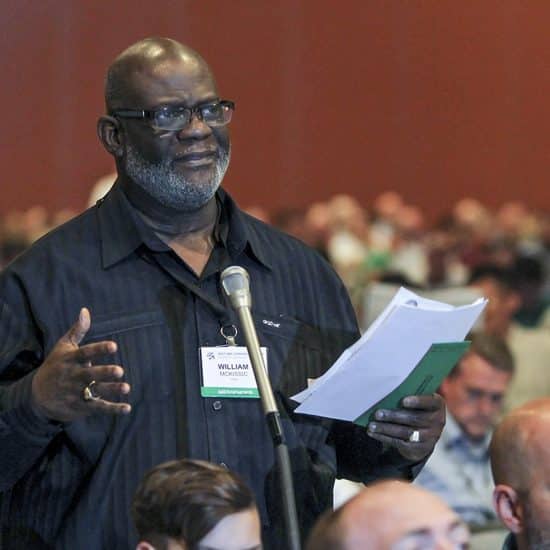JEFFERSON CITY — A Missouri House committee has passed a bill its proponents believe is sufficient reform of laws governing short-term, small consumer loans —so-called payday loans. But those pushing stronger measures believe the proposed legislation doesn't go far enough.
Sponsored by Rep. Ellen Brandom (R-Sikeston), HB 656 was developed by an ad hoc, bipartisan committee on which she had been asked to serve. "It's not any one person's bill," she told the House Financial Institutions Committee at a public hearing on March 9.
Critics charge the Brandom proposal is little more than an industry bill, supported by payday lenders and the financial institutions that back them.
The full committee passed the bill on March 16 after also considering an alternative, HB 132 proposed by Rep. Mary Still, D-Columbia. Still's proposal would have added more restrictions.
What is a payday loan and why do opponents consider such loans dangerous? Payday loans were designed to be small — usually smaller amounts than most banks will loan — short-term loans to assist an individual or family in an emergency. Though under Missouri law loans must be paid back within 31 days, most loans are granted for only 14 days.
To receive funds, a borrower postdates a check for the loan amount plus the lender's fee, intending to repay the loan on his or her next payday — hence, the name.
The annual percentage rate on payday loans in Missouri in 2010 averaged 444.61 percent, according to a report by the Division of Finance. Under current state law, the effective percentage rate can rise to as much as 1,950 percent, depending upon the fees charged.
If the borrower cannot repay the loan, he or she can renew it up to six times under current law. Each time the loan is renewed, the borrower must pay a renewal fee and at least 5 percent of the original loan.
Because loans are not tracked electronically, borrowers can get a loan from more than one company. Loans are often easier to obtain than a traditional loan because payday lenders either do not perform a credit check or offer fewer restrictions to qualify for a loan.
Often borrowers get caught in a debt trap. According to the Durham, N.C.-based Center for Responsible Lending, an estimated 12 million people get trapped in debt every year because of the high interest most payday lenders charge.
When the loan is due, most borrowers cannot afford to repay it and still have enough money to live on until their next payday, the center's website claims.
At the due date, the lender sends the check through to the borrower's bank. If it does not clear, the borrower then can be responsible for overdraft fees as well as a late fee to the lender. In some instances, often in spite of state laws, a lender will send a check through repeatedly, racking up additional fees.
The CRL and the FDIC have both called for a 36 percent cap on effective APRs, something Rep. Still's bill would have done. At the public hearing, Rep. Still noted a 36 percent cap would not include an origination fee. With that added, actual percentage APR would be at about 56 percent.
The industry, some lawmakers and consumer advocates are at odds over the consumer benefit of payday loans. At the March 9 hearing, some legislators argued that consumers have a choice. "It's not the product's fault" when consumers fall into debt, Rep. Sandy Crawford (R-Dist. 119) noted.
Industry leaders argued that a 36 percent cap would drive most payday lenders out of business. Some payday backers, including Missouri's Hispanic Chamber of Commerce, also argued that some consumers would suffer because they wouldn't be able to get a loan at any other financial institution.
Many borrowers are white-collar workers, Rep. Brandom contended. She believes payday loans are not targeted to minorities. "Anybody who questions that should spend time at a payday loan. They would be surprised at the professionals who come in," she said.
She added that she visited with ministerial alliances and other religious officials and discovered that "churches are not interested in getting into the loan business."
Rep. Brandom's bill would set the effective APR at 1,564 percent and drop the number of loan renewals from the current six allowed to three. Currently, the law does not require a consumer to wait to take out a new loan after paying off one. HB 656 would require a one-day cooling-off period. Also, current law requires no partial payment, while the Brandom bill calls for borrowers to pay 25 percent of the principle at renewal.
Rep. Still's legislation would have capped the APR at 36 percent, with a two-week wait and would not have allowed borrowers to renew a payday loan. In addition, it would have included a 90-day payback period and required partial payments every two weeks.
The Missouri Catholic Conference suggested a "middle-of-the-road" approach at the March 9 hearing. Its proposal would have allowed one loan renewal, prohibited loans under $100 and required a waiting period, according to MCC Executive Director Mike Hoey.
Although the Brandom bill has passed the committee, its release to the rules committee — the next step — is up to Financial Institutions Committee Chairman Don Wells. Rep. Wells (R-Cabool) owned a payday lending company for 12 years, selling the business in April 2010.





